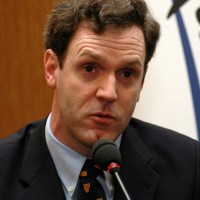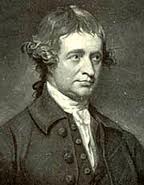Islam and the Closing of the Secular Mind, by Samuel Gregg
Given the decidedly strange response of the Obama Administration and much of the Western commentariat to the violence sweeping the Islamic world, one temptation is to view their reaction as simple incomprehension in the face of the severe unreason that leads some people to riot and kill in a religion’s name. But while the Administration’s response has plenty to do with trying to defend a foreign policy that has plainly gone south, it also reflects something far more problematic: the Western secular mind’s increasing inability to think seriously and coherently about religion at all.
This problem manifests itself in several ways. The first is the manner in which many secular thinkers seem to regard all religions as “basically the same.” By this, they often mean either equally irrational or as promoting essentially similar values.
A moment’s reflection would indicate to even the most militant atheist that this simply isn’t true. Islam and Christianity, for instance, have very different understandings of who Jesus Christ is. Christians believe that he is God, the second Person of the Trinity. Muslims do not. Ergo, Islam and Christianity are not effectively the same. At their respective cores are fundamentally irreconcilable theological positions. It’s also very difficult to find robust affirmations of free will outside Judaism and Christianity (at least the orthodox varieties of these two faiths).
Likewise, as any informed Muslim will tell you, Islamic theology has no real equivalent of the Christian idea of the church. The Greek word for “church” (ekklesia) literally means to be “called out.” That, alongside Christ’s words about the limits to Caesar’s power, had immense implications for how Christians think about the state and its relationship to religion. Among other things, it means Christianity has always maintained significant distinctions between the temporal and the spiritual realms that are far less perceptible — again, as any pious Muslim will inform you — in Islamic theology and history.
All this, however, is a little complicated for those secular intellectuals who simply regard religion as just another lifestyle-choice rather than being essentially about people’s natural desire to (1) know the truth about the transcendent and (2) live their lives in accordance with such truths.
Read the complete article in Catholic Education Resource Center
Edmund Burke and the Politics of Empire, by William F. Byrne
In the past few years, the subject of empire has received heightened interest from both a philosophical and public policy perspective. Questions of empire also dominated much of Burke’s career. It therefore makes sense to turn to Burke when looking for wisdom on such matters. The temptation must be avoided, however, to look to Burke for formulaic solutions to contemporary questions, or to characterize his views with a broad brush. Burke was neither a champion nor an opponent of empire in the general sense (or of the British Empire, in a more specific sense). His concern was with the specifics of how particular British possessions were administered. But, it is Burke’s attention to detail which helps to make his approaches to policy questions philosophically rich, rather than ideological.
Read the complete article in The Imaginative Conservative

